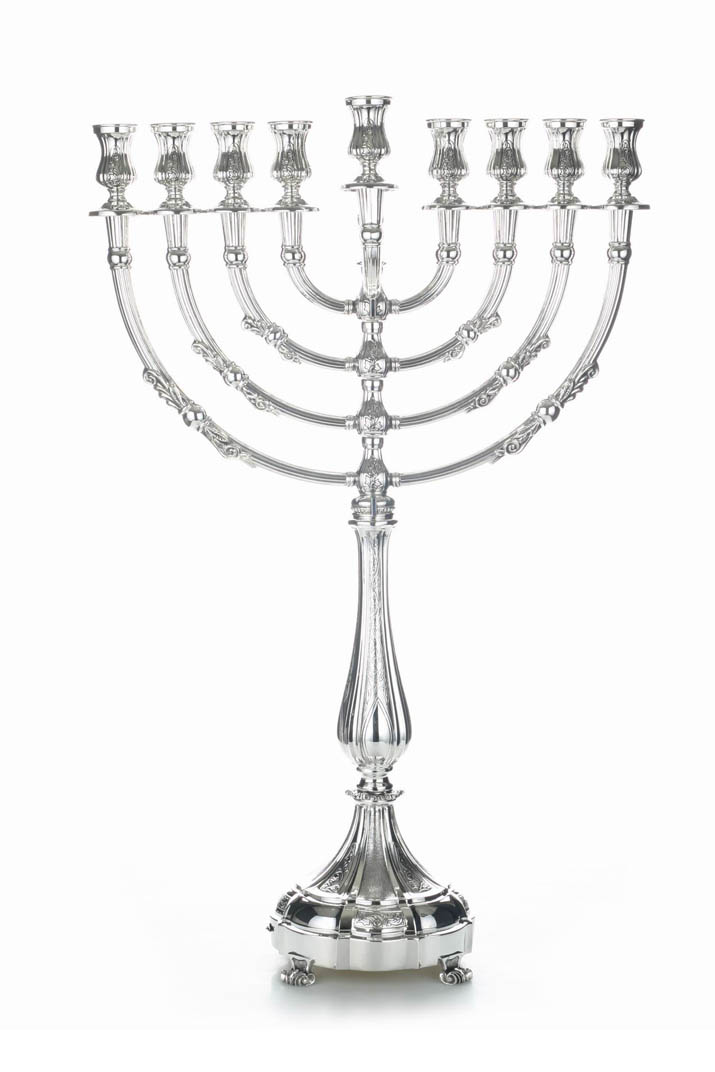Hanukah
Hanukah (חנוכה) (also transliterated as Chanukah or Chanuka) commemorates the liberation of Jerusalem from the Syrian (Seleucid) kingdom in 167 BCE. In 175 BCE, the Seleucid Emperor Antiochus (IV) Epiphanies of Syria (part of the former Greek Empire) wished to convert Jews to Hellenic culture eradicating their Jewish heritage.
The revolt against Antiochus was led by the Hasmonean (חשמונאי) Maccabee (Makabi) family elder Mattityahu son of Yochanan (מתתיהו בן יוחנן) (a Cohen priest from the town of Modi'in) and his five sons, Yochanan, Yehuda, Yonatan, Shimon, and Elazar.
The word חנוכה in Hebrew means inauguration. After their victory, the Maccabean family cleansed the Temple (Beit Hamikdash) from the idols placed by the Syrians/Seleucids and reconsecrated it on the 25th day of the month of Kislev. Therefore, the first day of Hanukah is on the 25th of Kislev.

Hanukah is the longest Jewish holiday celebrated for eight days. Each day, candles are lit in a special 8 branched candelabrum called a Hanukkiyah (חנוכיה). This candelabrum is different from the Temple Menorah that has seven branches. The eight days of candle lighting commemorate the relighting of the candles in the Temple by the Maccabees.
Location of the Hanukkiyah
It is customary to light the Hanukkiyah on a windowsill, to advertise the holiday and show the miracles we have experienced as a people. Many times Hanukkiya are placed on car roofs and in squares. Although they are not considered kosher according to Halacha, they are intended to advertise the holiday and give us hope for miracles in our history.
Order of lighting
Arrange the candles from right to left, with the first candle on the far right. When it comes to the actual lighting, we light the new candle for that night first. For example, on the third night of Hanukkah, we light the third candle first, followed by the second, then the first.
History
The revolt of the Maccabee family started a new period in Jewish history that is called as Hasmonean Dynasty. Mattityahu died a year after the start of the revolt and his son Yehuda HaMakabi led the Jewish forces in eight battles from 166 to 160 BCE. He was killed in the battle at Ba'al Hatzor in 160 BCE. After Yehuda, his brother Yonatan assumed the military leadership. Yonatan was killed in 143 and was succeeded by his younger brother Shimon.
In response to an ultimatum by Antiochus, the king of the Seleucid Empire, Shimon the Maccabee responded with a statement that has become a famous quote: "We have not occupied a foreign land; we have not ruled a foreign land; we have liberated the land of our forefathers from foreign occupation."
"לא ארץ נוכריה לקחנו ולא רכוש זרים כבשנו, כי אם
את נחלת אבותינו, אשר ע"י שונאינו, בלא משפט, באיזה זמן נכבשה. ואנחנו, משהזדמן לנו, השבנו את נחלת אבותינו".
According to the tradition established by Moses, religious priestly duties in the Temple were separated from political and military leadership roles. Shimon the Maccabee assumed for himself both the duty of a religious priest Cohen Gadol (כהן גדול) and the title of president and military leader. In retrospect, this dual role has been considered as one of the major reasons for the failure and eventual disintegration of the Hasmonean dynasty.
Related resources
- Selected Chanukah Sites
- Hanuka Photos
- Chanukah Guide for the Perplexed
- Would the Maccabees be proud?
Videos